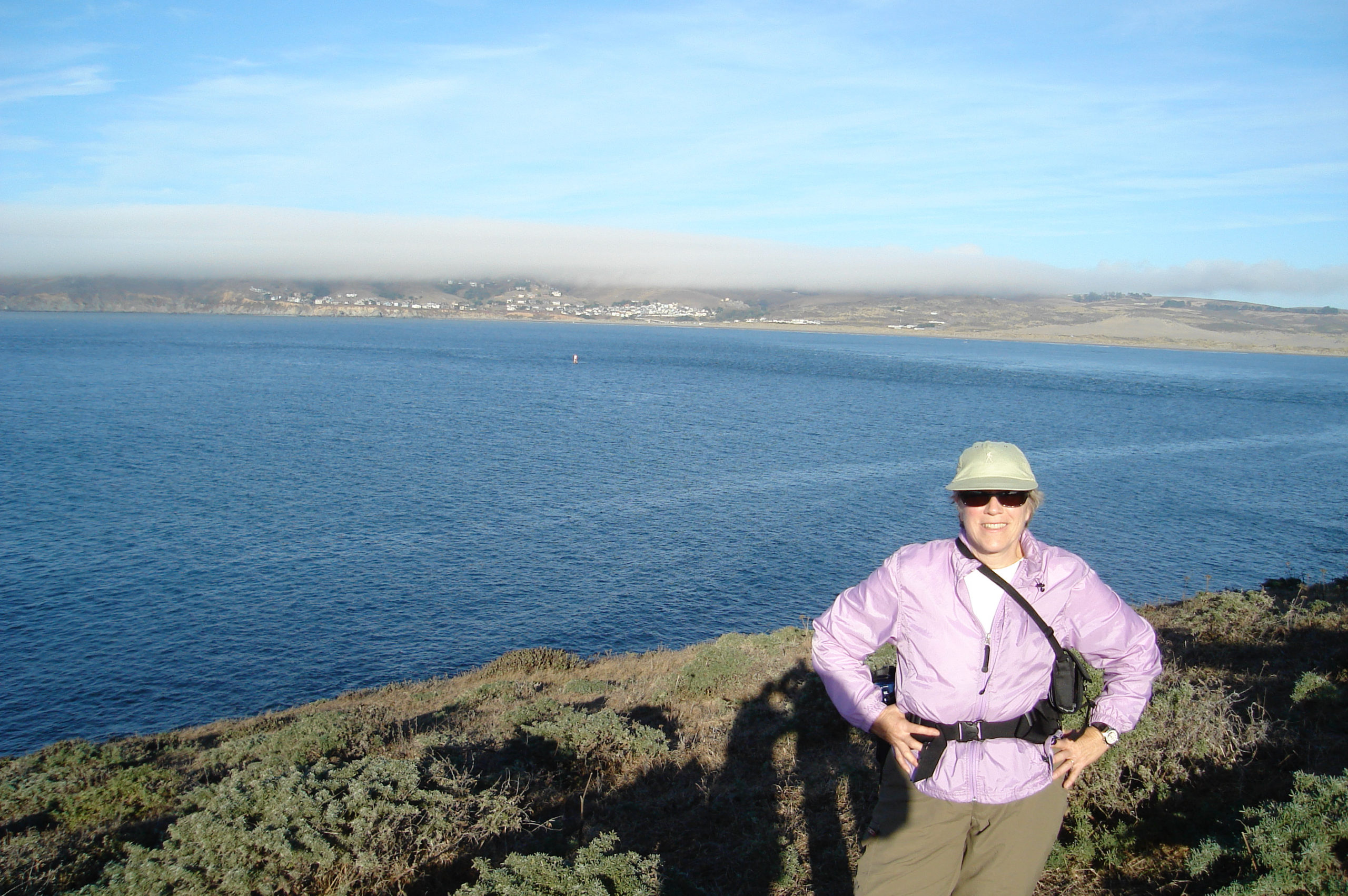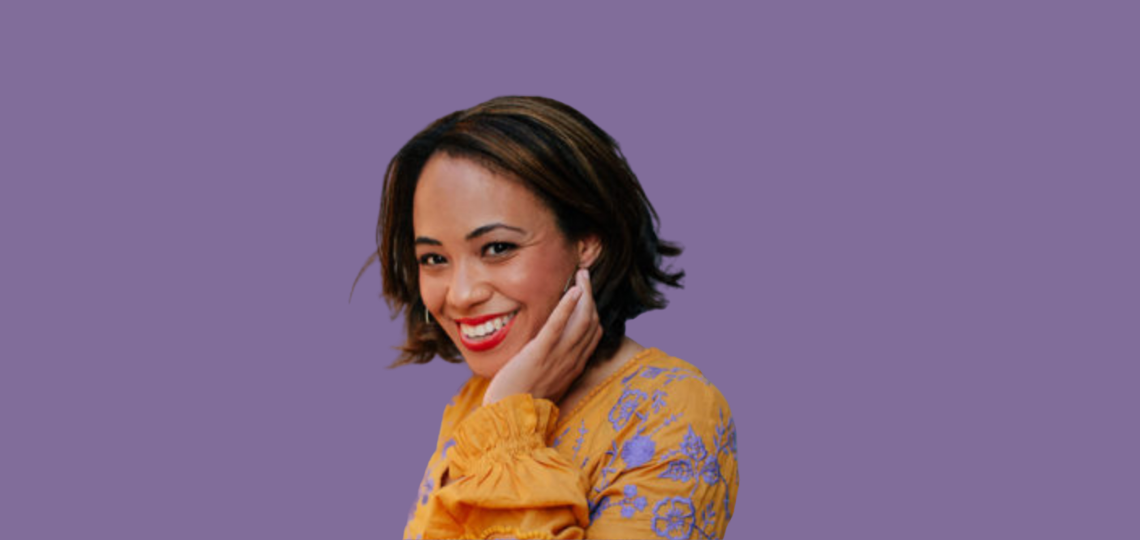How did you hear about the WISDOM Study?
I receive my healthcare at UC Davis Health and I was recruited there by my medical team.
Please tell me about your willingness to participate in research.
I’m interested in research, especially with regard to screening. I thought that since screening is so non-invasive, and if the study was going to result in more thorough screening, I should join. Anytime I am asked to do something to help with breast health I participate. Oddly, I never felt like I had any risk. In fact, when I’ve filled out the Wisdom surveys asking how often I think about breast cancer and how high I think my risk is, I just figured, I’ll never get breast cancer, I don’t have any risk. It never occurred to me that I might actually get breast cancer.
Can you tell me about your experience in WISDOM. When you enrolled, did you have a preference of which group to participate in?
I was randomly assigned to the personalized group. I did the genetic test and had no genetic predisposition; my personal recommendation was to get annual screenings. I continued to fill out the annual surveys and do annual mammograms. Then, last fall, after I was in the study for two years, I was contacted by someone in WISDOM’s central office and we had a video meeting. They led me through a Powerpoint presentation and explained why they thought I was now at higher risk, and they recommended a change in my screening. They said according to my mammograms I previously had dense breast tissue, but now it was showing as extremely dense. And it might have had something to do with my age, too. They now wanted me to get screened every 6 months, MRI alternating with mammograms, and recommended I take hormone medications prophylactically. They gave me this information to review with my Primary Care Physician, and a letter to give to my insurance company so they would cover the MRI.
My PCP ordered the breast MRI for me and referred me to a Breast Specialist at UC Davis Health, because she (the PCP) said she didn’t have that specialty. I went to the MRI in January and they saw something suspicious so they biopsied it. And there it was! Invasive Carcinoma of no special type.
So prior to the MRI, you had been getting annual mammograms and doing breast exams with your doctor but there was no indication of any issues?
Yes. It had never been identified on prior mammograms or through breast exams. No one could ever feel this, even once it was identified through the MRI. No one felt a lump —me, my oncologist, my surgeon, my Breast Specialist. It was WISDOM’s risk assessment that alerted me that I was now at higher risk, and the MRI that found it. It was very small, Stage 1B.
What treatments have you pursued?
I had a lumpectomy and biopsy of the sentinel nodes. I have clean margins and no lymph node spread. It’s the very best of a bad situation. My oncologist said she doesn’t think I’ll need chemotherapy, and I’ll go on hormone blocking drugs which I understand are not a picnic. I’ll soon know my radiation course of treatment.
So this is all extremely recent! How are you feeling about it all?
It is all very recent! I sent an email to my coworkers letting them know what was going on so that they didn’t wonder when they saw my out-of-office message. I told them that I’m in good hands, that this was found early because of the WISDOM Study, and that my co-workers should join too.
You know, I read the book Radical by Kate Pickert. It was very eye opening for me and I really related to the story. We go marching off each year for annual mammograms, but it may not be the best screening method. It certainly wasn’t the best for me. The other day I looked back at my old mammogram reports and saw that they say that I have dense breasts and should discuss the best screening methods for me with my PCP. I never thought much about that statement. I never acted on it, and neither did my PCP.
It sounds like your participation in the WISDOM Study has been pretty impactful for you.
Yes, I’ve learned so much. The book Radical really resonated with me about how there is so much emotion around breast cancer; that the emotion often overrides the science and the statistics. People have gotten up in arms about recommendations to get screened every two years (they have been attached to annual screening) and in my case, probably annual mammogram screening was not enough. A mammogram would not have seen my cancer until it got much bigger, and then I’d be in a much different place.
What would you say to WISDOM participants who receive a personalized recommendation from us to screen every two years rather than every year, but may be reluctant to do this?
I’d say, trust the science.
What would you say to women who haven’t joined WISDOM because breast cancer isn’t relevant to their life; perhaps like you did earlier, they feel breast cancer is “over there” and wouldn’t happen to them so the study may not seem all that important.
The key takeaway for me—what I learned from this study—is that one size does not fit all. We try to put this one approach on all women: “go get your mammogram every year for everybody”. But everybody’s situation—their age, their genetics, all the factors—are different. Doctors take these factors into consideration in screening for other conditions, like colon cancer. So why not try to get something personalized for breast cancer screening? It just makes sense. Even if you don’t think you have a risk, it doesn’t hurt to participate in WISDOM. Making the data set bigger provides more information, it helps make the case for which approach is the best.
We thank Cynthia for her participation in WISDOM, her bravery, and her willingness to share her story publicly. The Women of WISDOM are who make this study possible. We appreciate hearing stories about your experiences in WISDOM, learning what things have been meaningful and what may need improving. This is what helps drive us forward to continue with our mission, through the good times and the bad. If you would like to share your story and be featured in our Women of WISDOM blog series, please send an email to steffanie.goodman@ucsf.edu.



